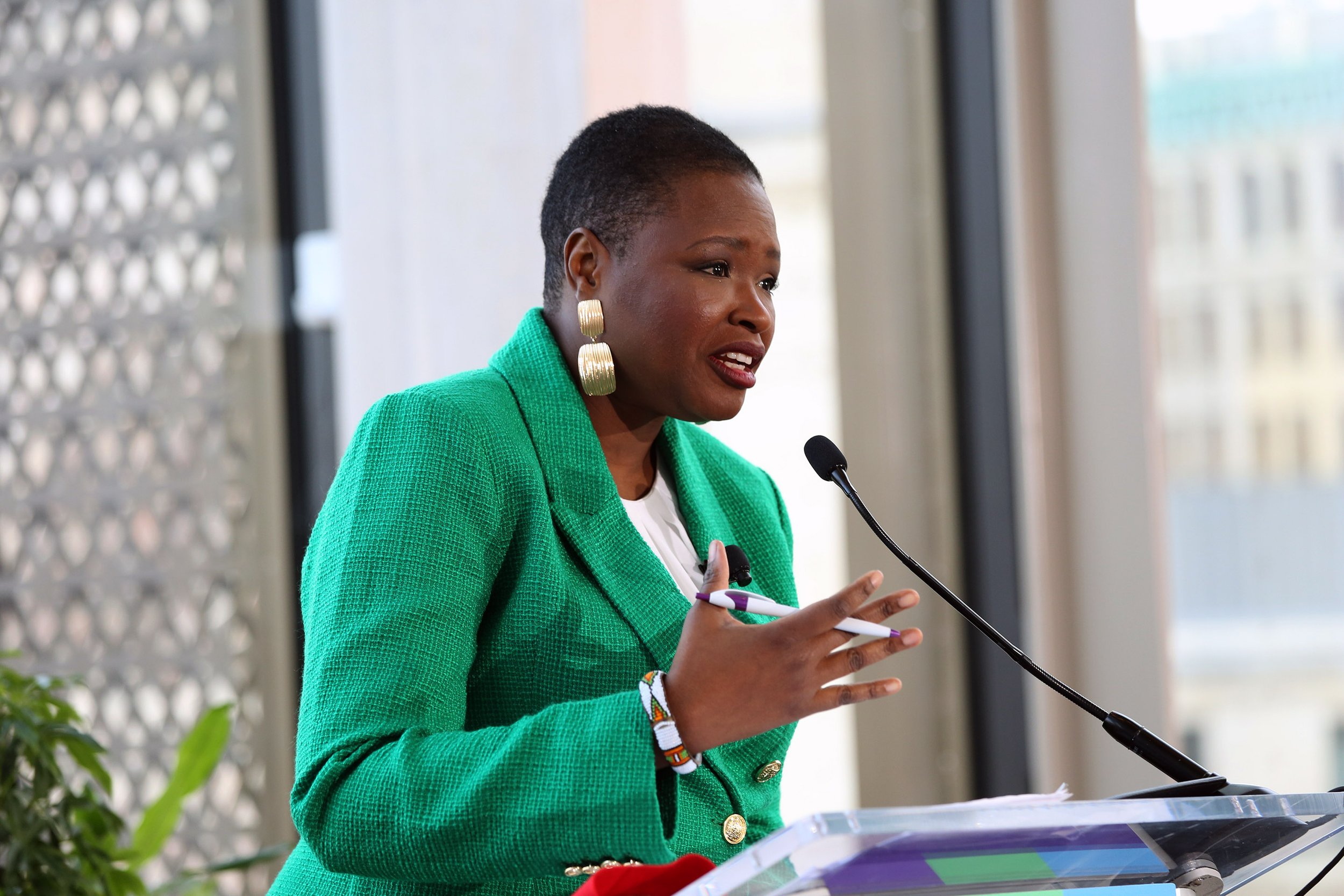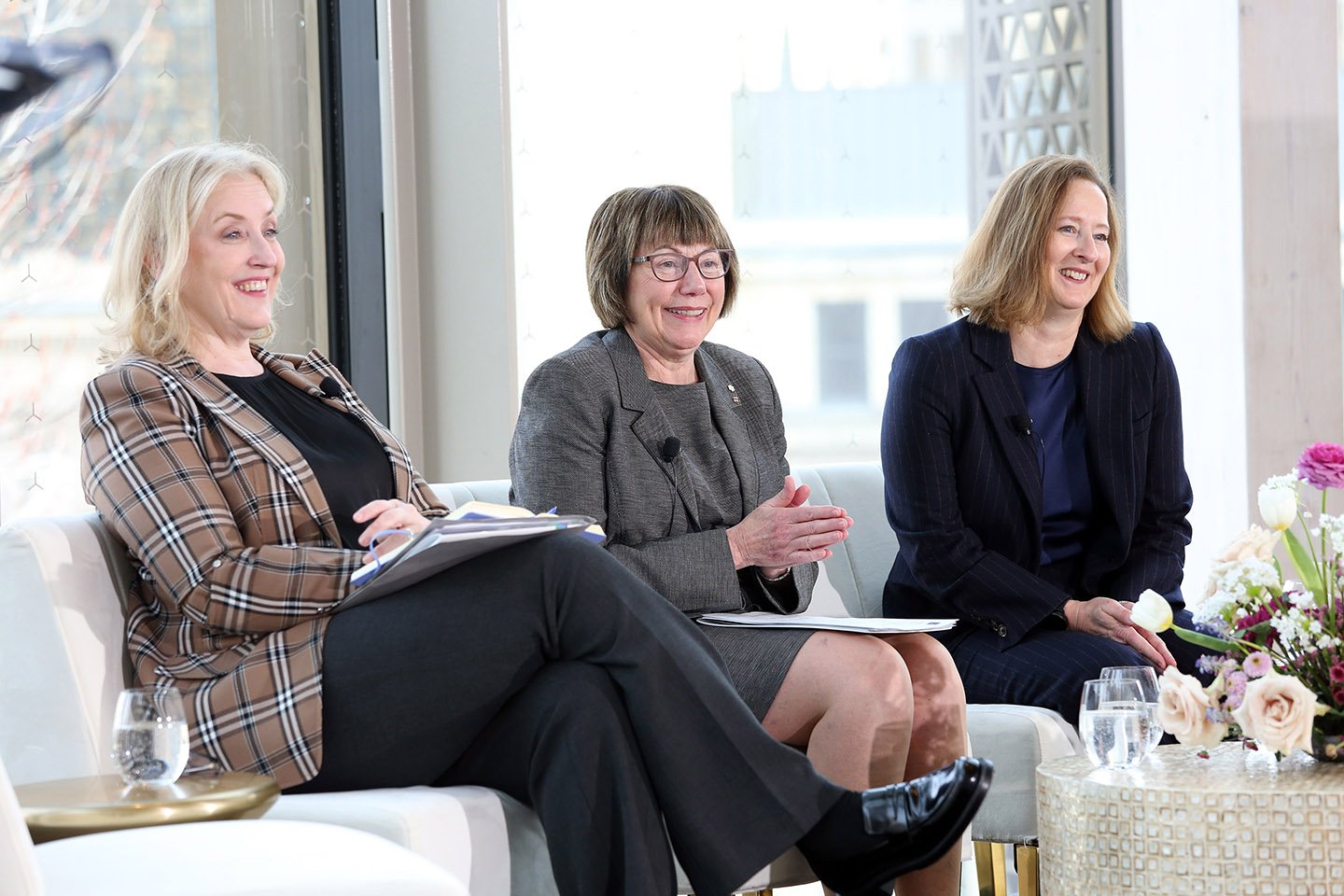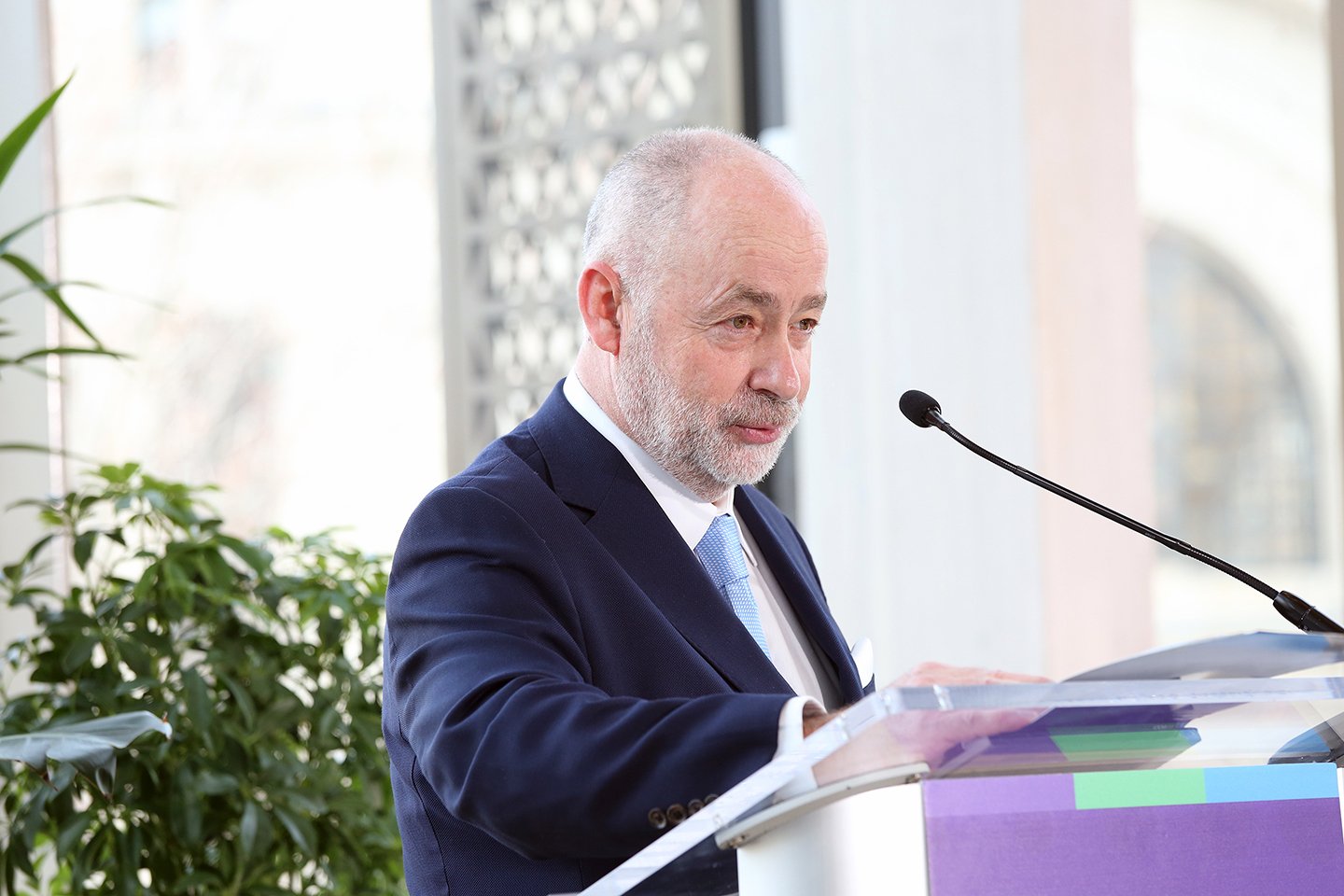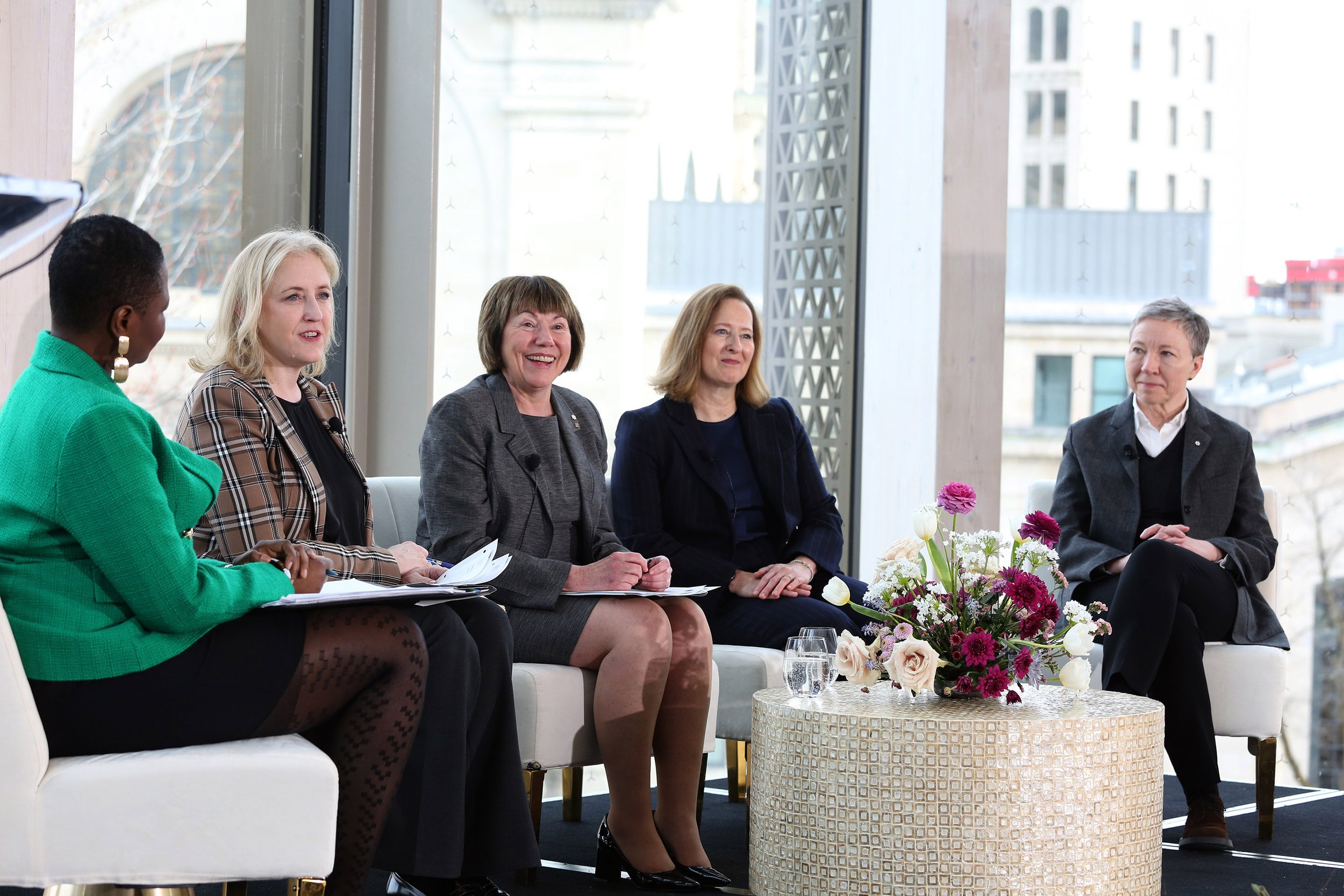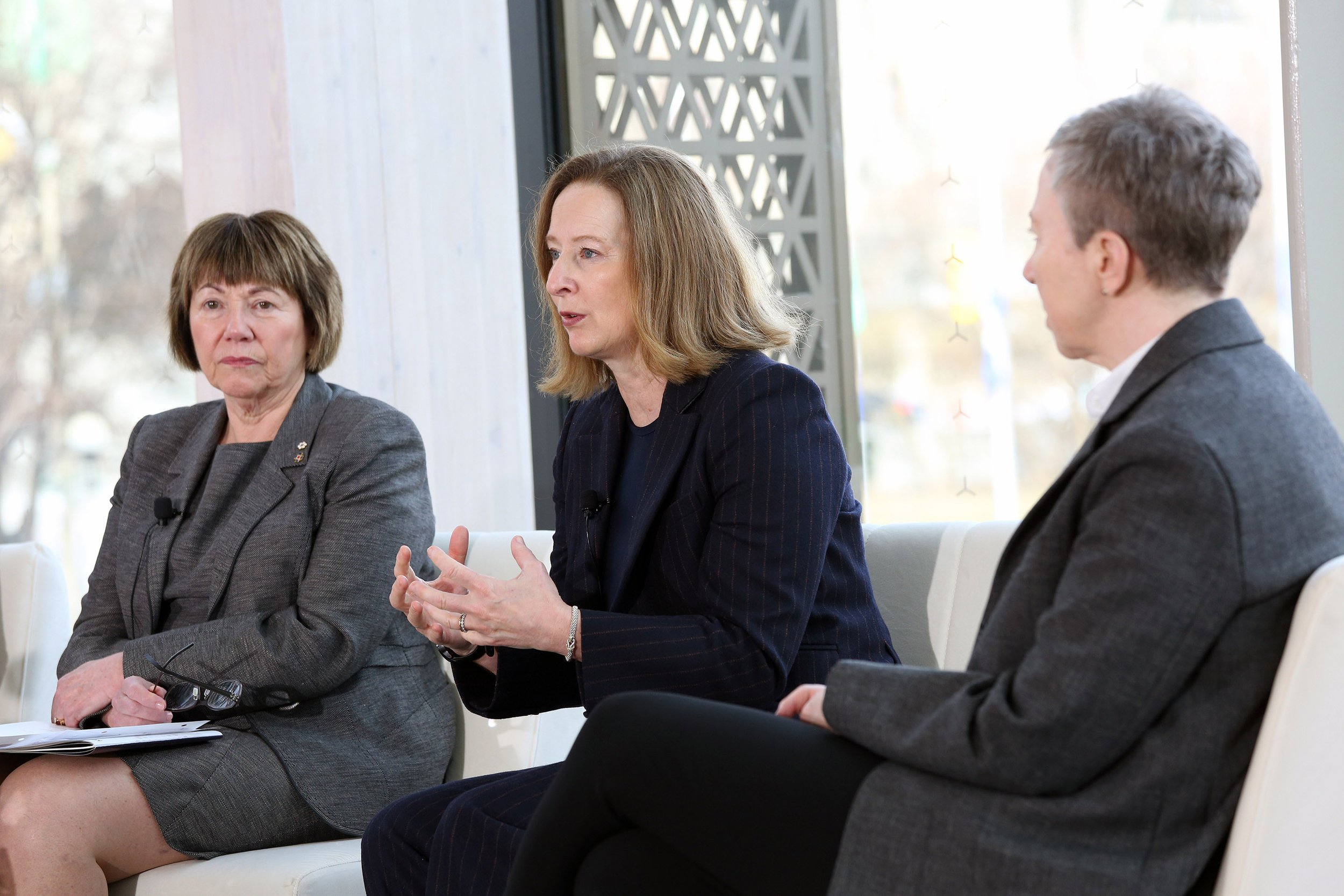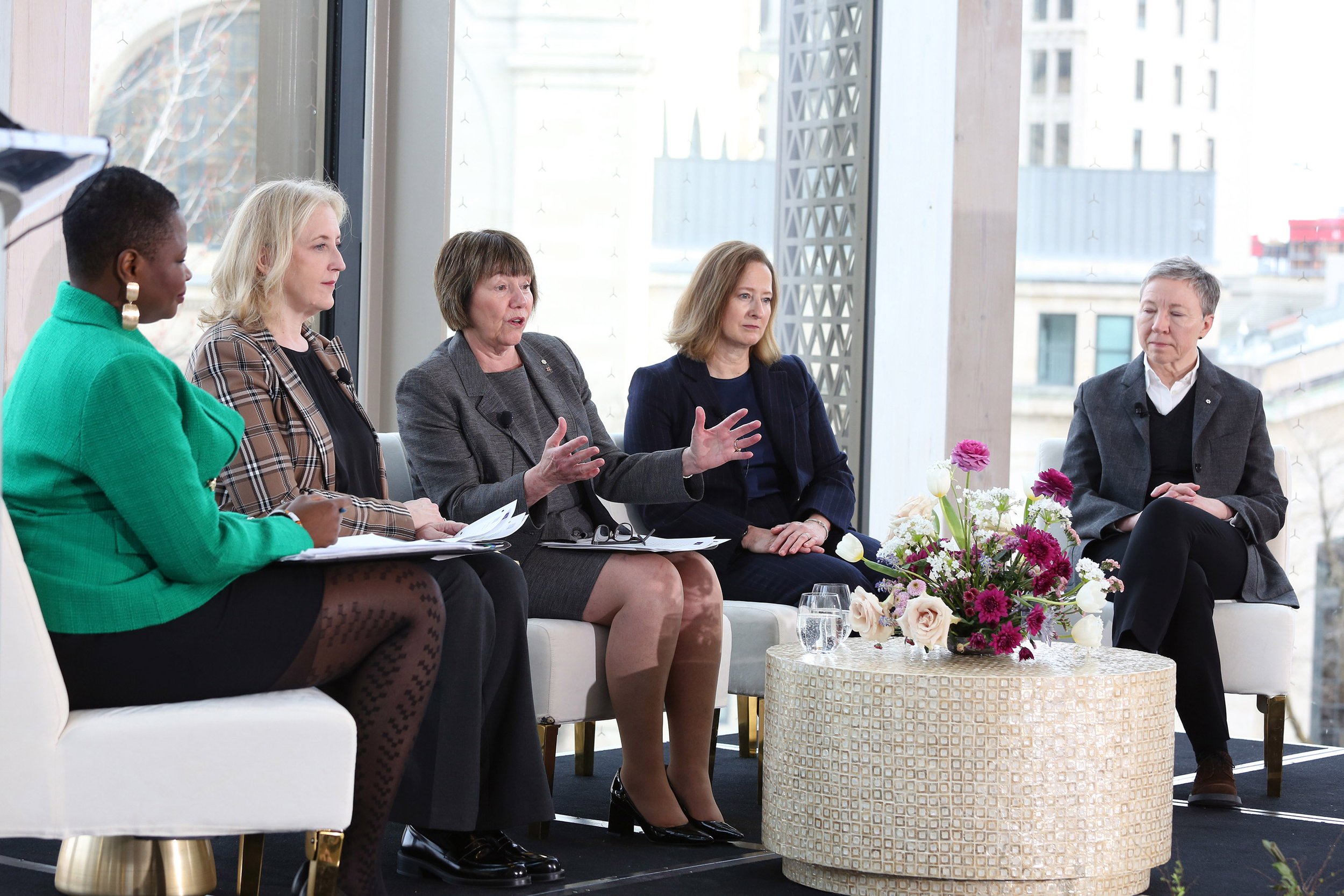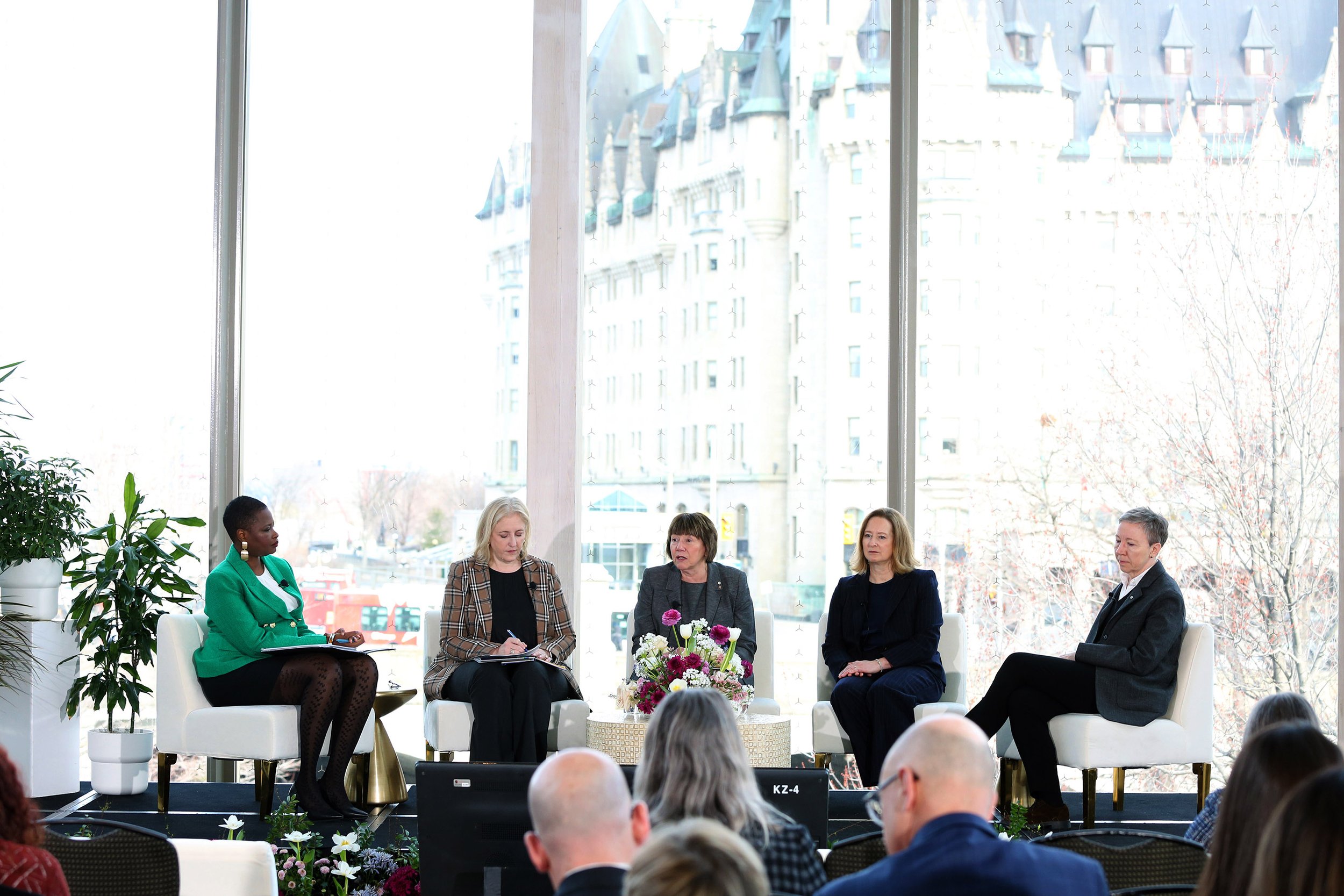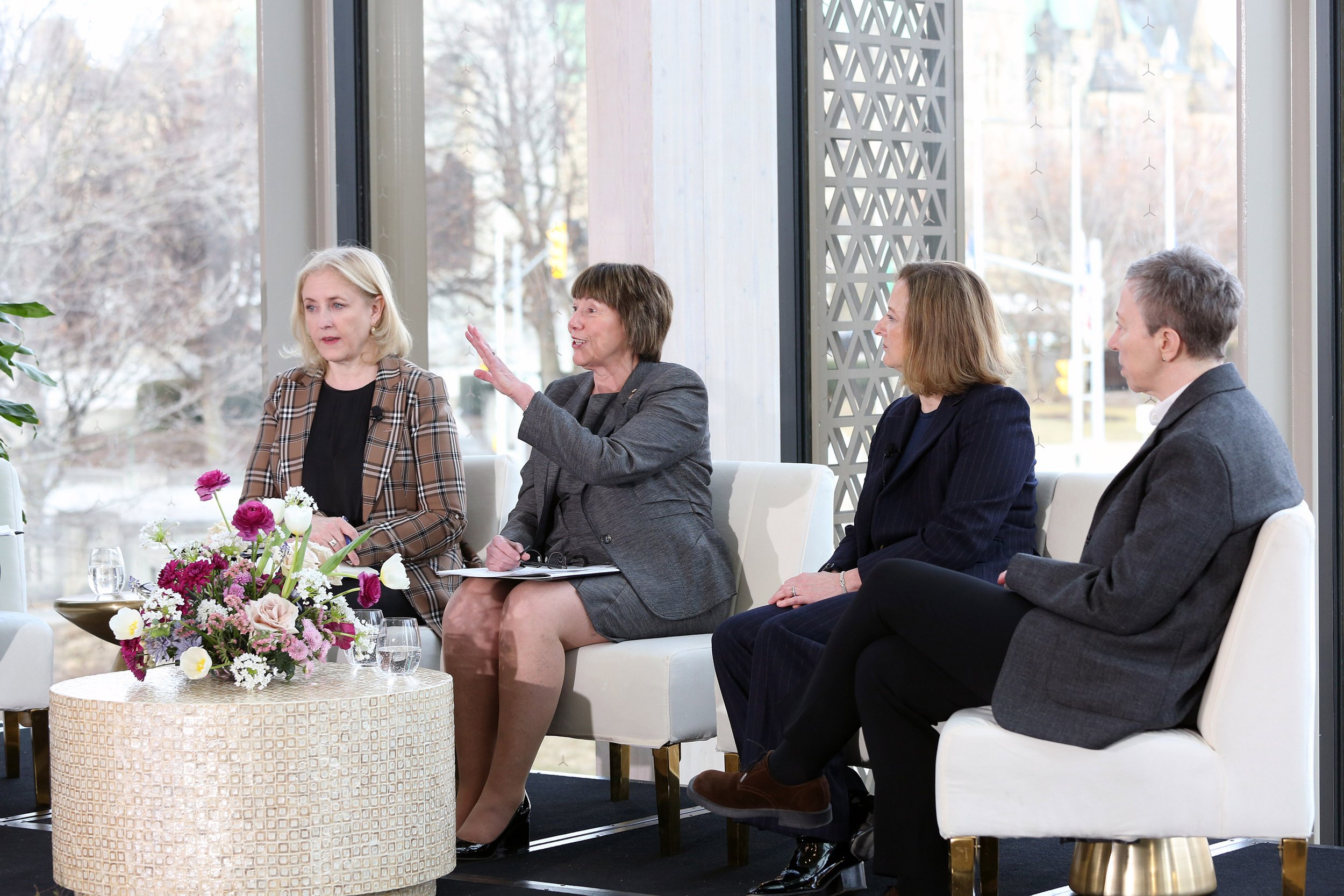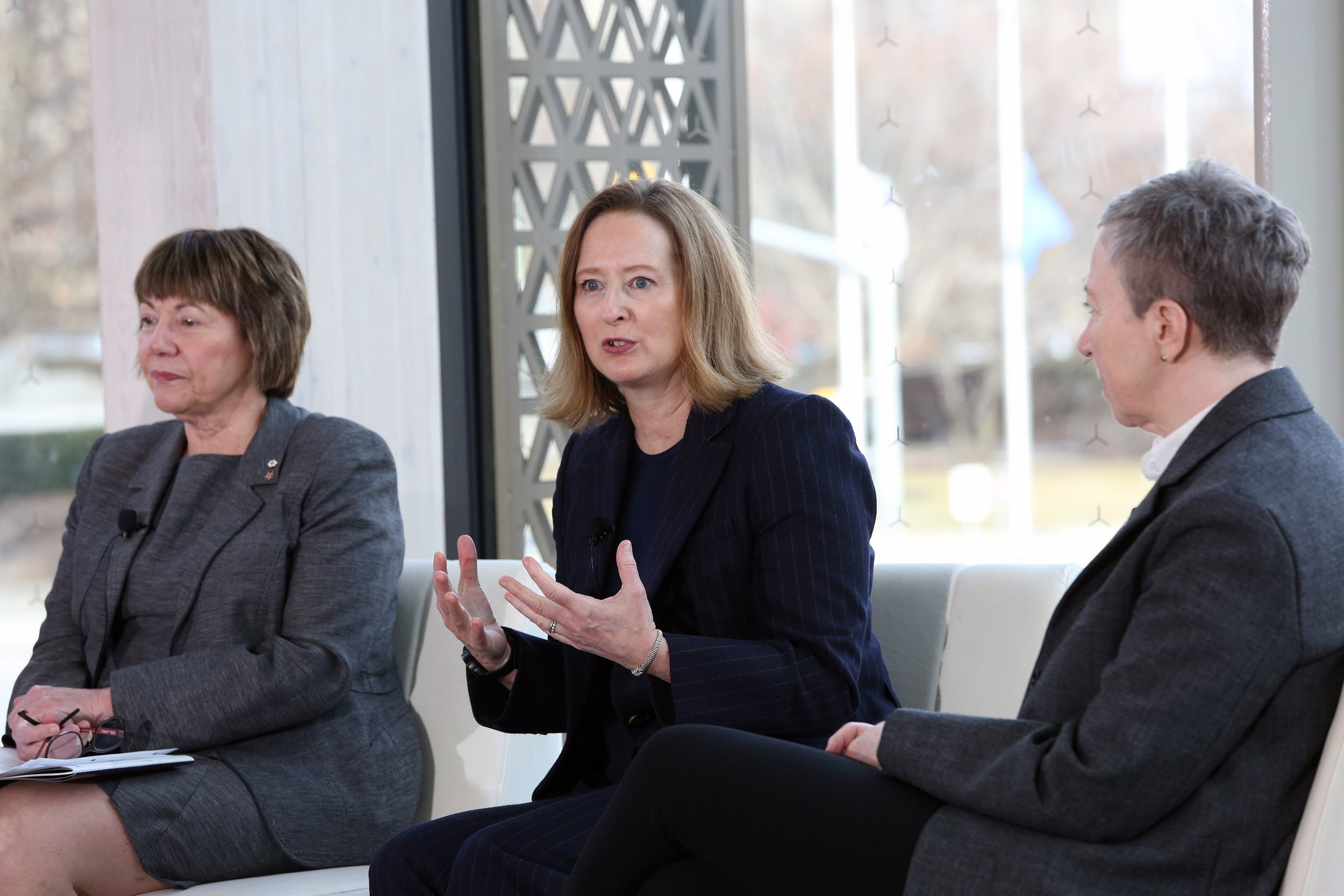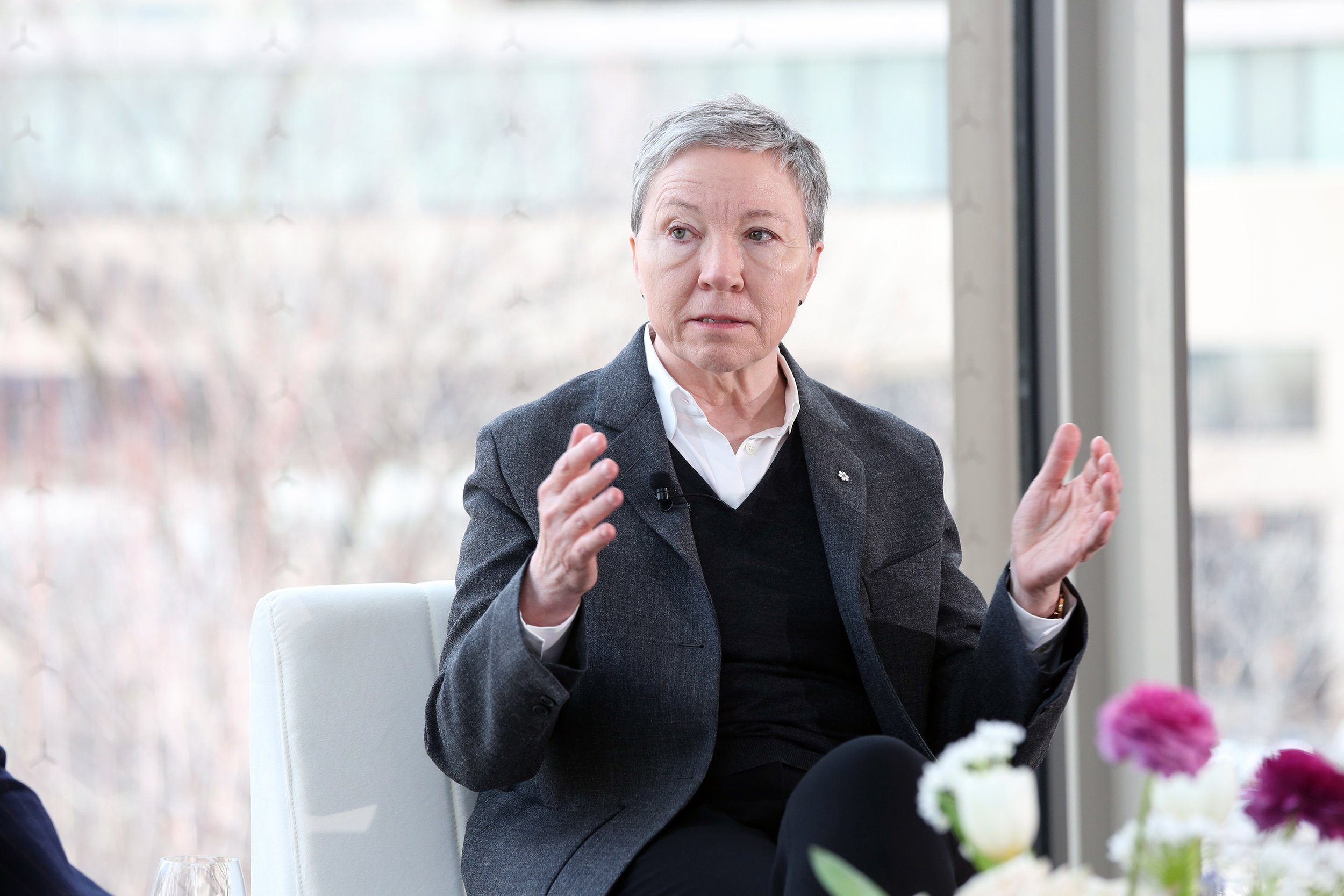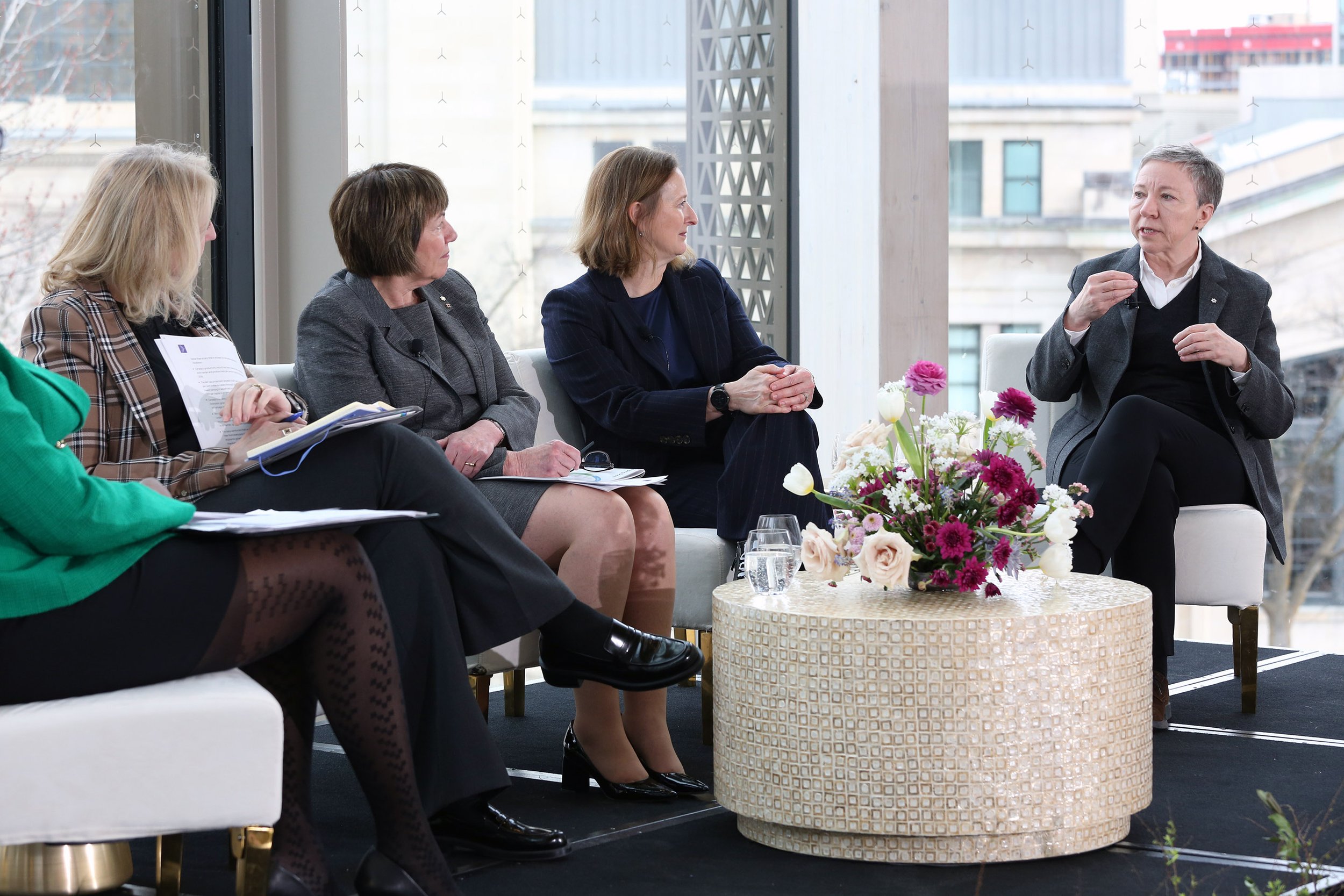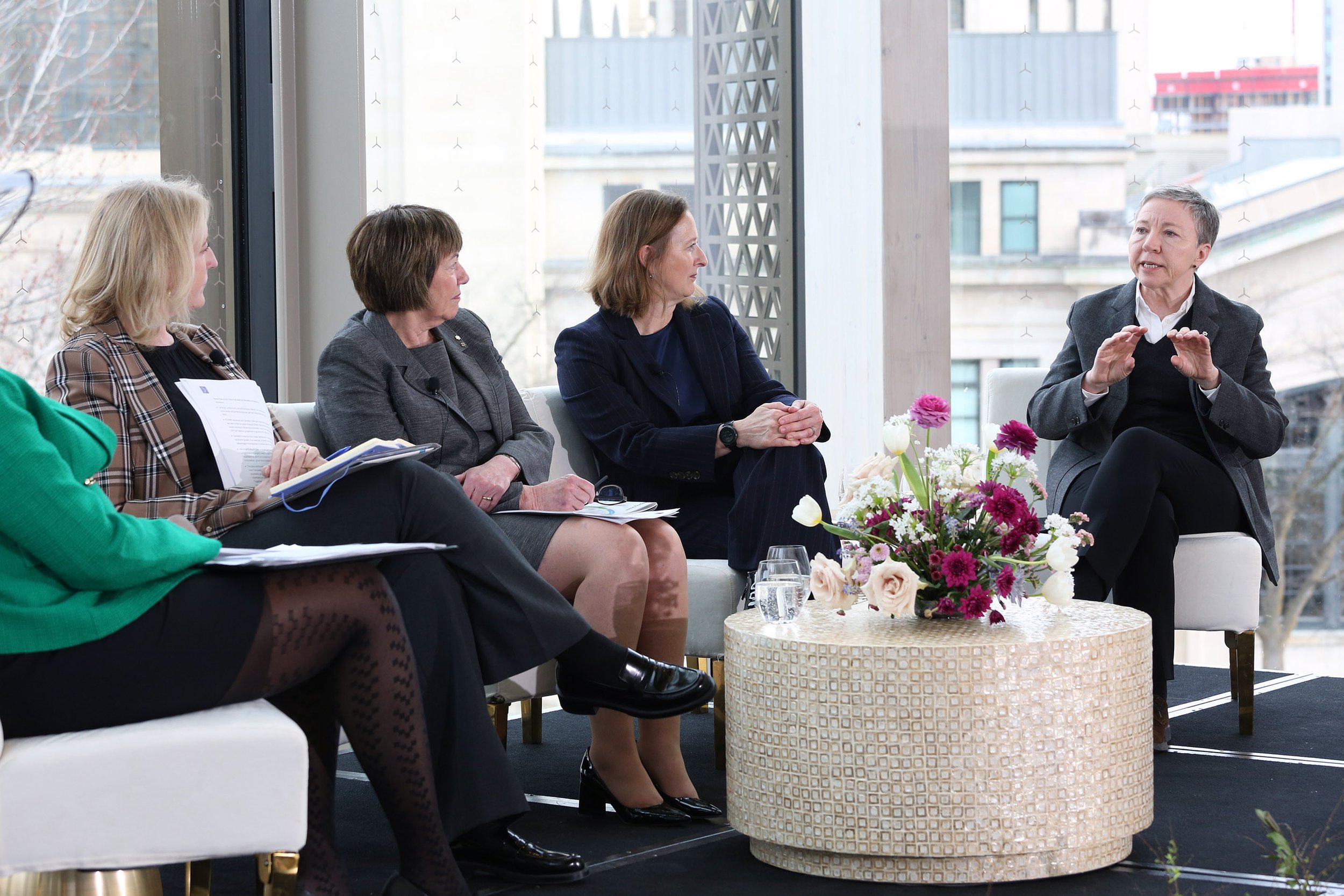Canada is ‘stuck’ and needs investment, plan to kickstart economic growth: Scorecard panel
Canada must urgently find and implement long-term solutions for economic growth in order to boost quality of life and bolster competitiveness, according to panellists at the Coalition for a Better Future Scorecard 2024 event.
Coalition co-chairs Lisa Raitt and Anne McLellan were joined by Carolyn Wilkins, Coalition Advisory Council Member, external member of Bank of England’s financial policy and senior research scholar at Princeton, and Zita Cobb, co-founder and CEO of Shorefast to discuss the Scorecard results – and what they mean for Canadians now and in the future.
McLellan said the report reflects “real challenges” that affect Canadians’ quality of life, especially for youth, immigrants and Indigenous people. Economic growth affects the lives of all Canadians - and yet we are currently “stuck,” she said.
“While we are making some progress in certain areas overall, there is a fragility about our situation as a nation, our competitive position in relation to other countries to which we compare ourselves. There's a fragility around growth for certain key parts of Canadian society,” McLellan said in the panel moderated by CPAC anchor Omayra Issa.
Raitt called the situation a “serious concern” that raises the spectre of losing an entire generation of Canadians who can’t afford to live here anymore – and don’t see anything in the works to help them get through it.
“It’s not a short-term problem. I think if you provided them with hope and a plan they’re actually going to be interested in sticking around,” she said.
“While we are making some progress in certain areas overall, there is a fragility about our situation as a nation, our competitive position in relation to other countries to which we compare ourselves.”
Anne McLellan, co-chair, Coalition for a Better Future
In partnership with researchers at the University of Ottawa’s Telfer School of Management, the annual Scorecard report measures 21 metrics to track Canada’s progress on key economic, social, and environmental indicators. All metrics are internationally accepted indicators of a country’s economic, social and environmental progress.
According to this year’s report, Canada’s economy on a per-capita basis has not only stalled but is contracting. Real GDP per capita has fallen over the past year faster than at any time in at least six decades outside of a recession, and we are producing less per person today than we were in 2018.
On a positive note, the latest income survey data from Statistics Canada shows Canadian median income from wages adjusted for inflation rose 3.5 per cent during the year. That marks a significant improvement for real incomes – the highest in at least a decade. On the downside, 2.8 million Canadians were living in poverty in 2021 – that’s down from five million in 2015 but up from 2.4 million in 2020. Housing insecurity, potential long-term fallout from the pandemic around education and the fragile economy’s impact on lower-skilled workers pose a risk for the numbers to climb even up higher.
“It’s thinking about who we are as a sum of our parts, thinking about 4,500 communities and asking the question ‘What is the economy for? What’s it supposed to do?’ ”
Zita Cobb, Co-founder and CEO, Shorefast
Wilkins noted that the pressures on health care and housing will mount with an aging population combined with the costs of tackling climate change. All Canadians are worse off without economic growth, she said, and there needs to be greater investment in research and development, equipment and skills training.
“It’s not a question of national pride – ‘We just want to win’ – it’s a question of being able to afford what Canadians want,” she said.
Wilkins said priorities for economic growth are increased capital, investment in infrastructure such as ports and rail, and tax and regulatory reforms. Investors want certainty around timelines for project approval to know when they can get a return on their investment.
Cobb said there should be a rethinking of how we look at the critical components of Canada’s economy, recognizing that communities of different sizes and companies that are small, medium and big all play an important role.
“It’s thinking about who we are as a sum of our parts, thinking about 4,500 communities and asking the question ‘What is the economy for? What’s it supposed to do?’ And I think the fundamental question is how do we live together better?” she said.
While the Scorecard report has some bleak findings on Canada’s current economic situation, the panellists agreed there remains much reason for hope for the future.
McLellan said drawing the link between economic growth and Canadians’ own quality of life will spur change and action.
“The Coalition is about elevating those conversations and about helping people understand that economic growth is not some term used by economists that’s cold and unflinching, but in fact what we’re talking about here is how you and your family live your life and the attributes of that life,” she said.
The Coalition wants to hear from all Canadians on their ideas and experiences around economic growth.
Have your say here.




